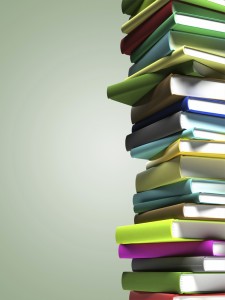 Changing Feminist Paradigms and Cultural Encounters: Women’s Experiences
Changing Feminist Paradigms and Cultural Encounters: Women’s Experiences
in Eastern Mediterranean History in the Nineteenth and Twentieth Centuries
June 7-9, 2013, İstanbul
June 7, Friday:
Cultural Heritage Museum Seminar Room, Boğaziçi University
9:30-10:30 Opening Speeches
Jean Quataert (Binghamton University, Co-editor, Journal of Women’s History)
Leigh Ann Wheeler (Binghamton University, Co-editor, Journal of Women’s
History)
Arzu Öztürkmen (Boğaziçi University, Journal of Women’s History)
10:30-11:00 Coffee Break
11:00-12:30 Women Pioneers, Agency, and Activism
Chair: Leigh Ann Wheeler (Binghamton University, Co-editor, Journal of
Women’s History)
Ana Stjelja (Independent Scholar), Historical Patterns of Women’s Activism
in the Region: The Case of Serbian Writer Jelena J. Dimitrijevic
(1862-1945)
Nevila Pahumi (University of Michigan, Ann Arbor), Visions of a Petite
Diplomate: Paraskevi Kyrias and “Albania” at the Paris Peace Conference,
1919
Umut Azak (Okan University)/Henk de Smaele (University of Antwerp),
National and Transnational Dynamics of Women’s Activism in Turkey in the
1950s and 1960s: The Story of the IWC Branch in Ankara
12:30-14:00 Lunch Break
14:00-15:30 Can We Speak of “Women”? Different Agendas, Different Feminisms
Chair: Benita Roth (Binghamton University, Associate Editor, Journal of
Women’s History)
Amany Soliman (Alexandria University), Non-Muslim Feminists in Egypt’s
Early 20th Century: A Double Challenge
Başak Tuğ (İstanbul Bilgi University), The Alternative Modernity of Sabiha
Sertel’s Cicianne
15:30-16:00 Coffee Break
16:00-17:00 Education, Agency and Nationalism
Chair: Arzu Öztürkmen (Boğaziçi University, Journal of Women’s History)
Ellen Fleishmann (University of Dayton), Education and Agency in Early
Twentieth-Century Lebanon: Women Educated “Under an American Roof”
Nadya Sbaiti (Five College), Separate in our Togetherness? Education for
Women and Nation in Interwar Lebanon
June 8, Saturday
Santral Residence, “Board of Trustees Meeting Room”, İstanbul Bilgi
University
9:30-11:00 Reconstructing the Untold Experiences
Chair: Jean Quataert (Binghamton University, Co-editor, Journal of Women’s
History)
Ebru Aykut (Mimar Sinan University), Home-Rebels in the Late Ottoman
Empire: Murderous Wives and Female Arsonists
Nadezhda Alexandrova (Sofia University), Bulgarian Women in Istanbul in
the 1860s and 1880s
Yavuz Selim Karakışla (Boğaziçi University), Nursing in the Ottoman
Empire, 1854-1923
11:00-11.30 Coffee Break
11:30-13:00 Gendered Experiences of Inclusion and Exclusion
Chair: Elisa Camiscioli (Binghamton University, Book Review Editor,
Journal of Women’s History)
Gülhan Balsoy (Işık University), The Women of the Haseki Women’s Hospital
and Being a Poor and Lonely Woman in Late Nineteenth-Century Istanbul
Kent Schull (Binghamton University), State Patriarchy and Gendered
Incarceration: Women, Children, and Prison Reform in the Late Ottoman
Empire
Liat Kozma (Hebrew University), The Traffic in Women and Children in the
Middle East in the Interwar Period
13:00-14:30 Lunch Break
14:30-16:00 Challenging the Nationalist Historiographies
Chair: Yeşim Arat (Boğaziçi University, Journal of Women’s History)
Zeynep Türkyılmaz (Dartmouth College), Being the Mother for Others’
Daughters: Maternal Colonialism and the Female Nation-Builders of the
Turkish Republic
Rezzan Karaman (University of California, Los Angeles), The Formation of
Gender Roles within the Context of Kurdish National Discourse in the Late
19th and Early 20th Centuries
Selda Tuncer (Middle East Technical University), Going Public: Women’s
Everyday Experiences of Public Space in Modern Turkey
16:00-16:30 Coffee Break
16:30-18:00 Roundtable Discussion
Moderator: Nükhet Sirman (Boğaziçi University)
Feminist Publishing in Turkey and the US: Comparative Histories and
Experiences
June 9 , Sunday
Cultural Heritage Museum Seminar Room, Boğaziçi University
9:00-11:30 Discourses on Women
Chair: Suraiya Faroqhi (İstanbul Bilgi University)
Ceyda Karamürsel (University of Pennsylvania), Re-reading the Second
Constitutional Era through Women and Slavery
Eftymia Kanner (University of Athens), Communal Interaction, Discourses on
Women’s Rights and Feminist Interventions from the Ottoman Reform Era to
the Early Turkish Republic
Katerina Dalakoura (University of Crete), Discourses on Women’s
Emancipation in Greek Women’s Journals (1880-1911): “Feminisms” in Ottoman
context
11:30-12.00 Coffee Break
12:00-13:30 Closing Remarks
14:00-18:00 Visit to Topkapı Palace and Harem
http://journalofwomenshistory.org/?p=983
 Global Outlook Digital Humanities, The University of Lethbridge, and
Global Outlook Digital Humanities, The University of Lethbridge, and 



